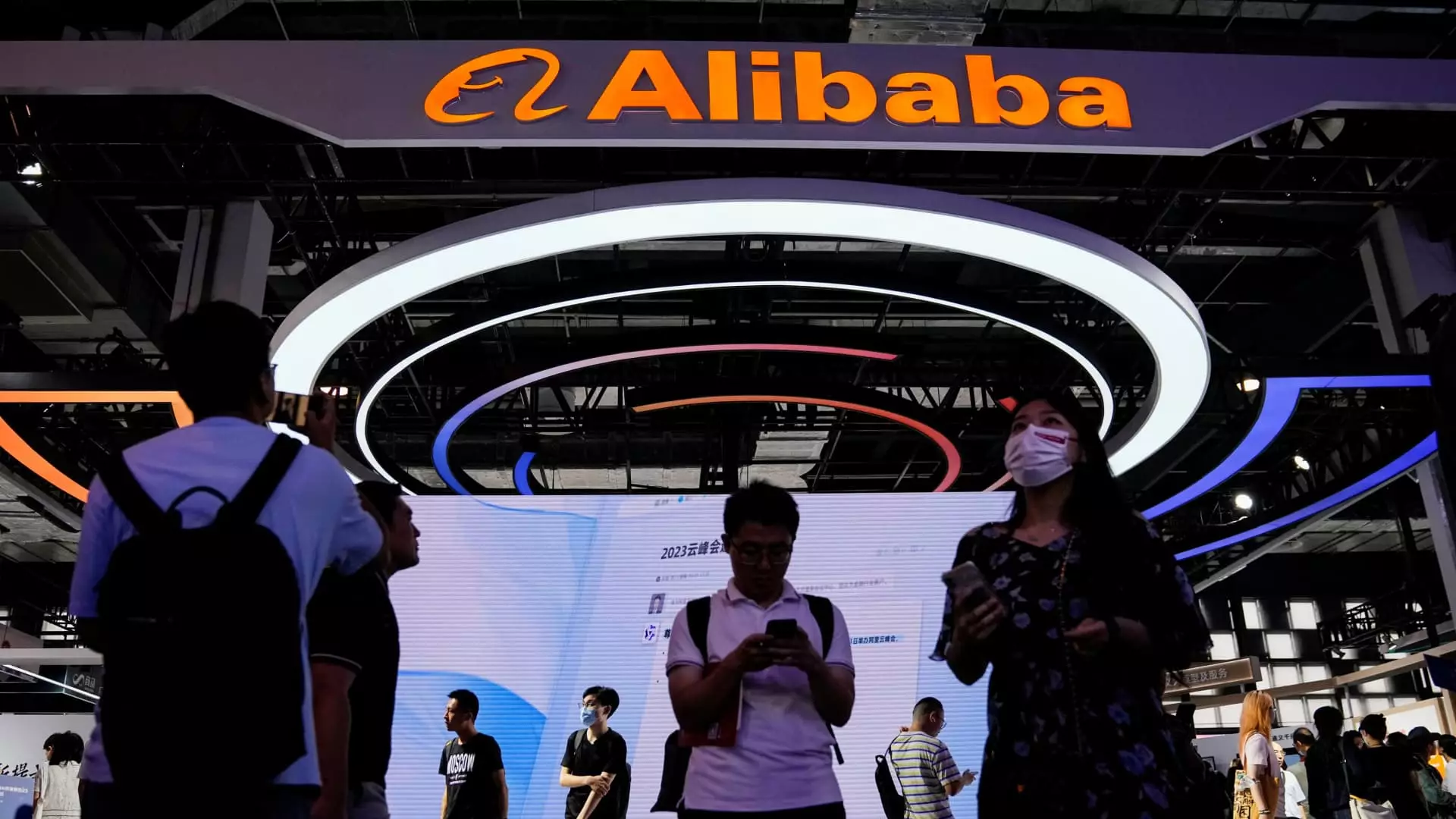In a strategic pivot aimed at enhancing its foothold in the competitive landscape of artificial intelligence (AI), Alibaba has announced an unprecedented reduction in prices for its large language models (LLMs) by as much as 85%. This decision, made public by the company’s cloud computing arm, Alibaba Cloud, signifies a critical moment in the ongoing race among major Chinese technology firms to secure a leading position in the ever-evolving AI market. While the stock market’s reaction to this announcement was muted—resulting in only a slight increase of 0.5% in Alibaba’s share price on a significant trading day in Hong Kong—the implications of this move are far-reaching.
The competitive dynamics of AI technology are being reshaped by companies like Alibaba, Tencent, Baidu, JD.com, Huawei, and ByteDance, all of whom have launched their LLMs in response to growing consumer interest over the past 18 months. Each company is striving to harness the excitement surrounding generative AI, paralleling the success of entities like OpenAI, which is backed by Microsoft and known for its flagship chatbot, ChatGPT.
Alibaba’s Strategic Focus on Enterprises
Unlike its Western competitors, Alibaba has opted for a different trajectory by emphasizing its offerings in the enterprise sector rather than pursuing a consumer-facing AI chatbot model. Its Qwen AI family has already seen significant adoption; over 90,000 enterprises are reportedly utilizing these models in their daily operations. This focus may yield significant dividends as businesses increasingly recognize the potential of AI to revolutionize their operations, improve efficiency, and generate insights from vast data pools.
The relationship between pricing strategies and market adoption is particularly salient in this context. Alibaba has employed aggressive discounting tactics prior to this, reducing prices by up to 55% on numerous cloud products back in February and further cutting costs on the Qwen AI model by as much as 97% in May. Each of these price cuts represents Alibaba’s commitment to not only attract new customers but also foster a broader ecosystem where enterprises feel compelled to integrate AI technologies into their frameworks.
Large language models have emerged as foundational elements of modern AI systems, capable of processing and generating human-like text based on a diversity of input. Trained on extensive datasets, LLMs like Alibaba’s Qwen-VL are exceptionally adept at interpreting both textual and visual information, thereby expanding the scope of tasks they can assist with, from customer service inquiries to content generation.
In a market that constantly demands innovation, the ability of these models to generate coherent and contextually aware communications is invaluable. Companies deploying these technologies can leverage conversational agents that not only respond to customer queries but also assist in creating content that aligns with brand identities. The push for quality LLMs has thus become intrinsic to competitive strategy in various industries.
Alibaba’s recent price cuts signal more than an immediate financial strategy; they indicate an aggressive stance in positioning itself at the forefront of AI technology developments. As competition intensifies, especially with other tech giants aggressively marketing their own AI capabilities, the question remains: who will ultimately capture the loyalty of businesses looking to integrate AI solutions?
This scenario invites scrutiny as both existing players and new entrants vie to capture market share. The ongoing developments in AI technology will likely prompt shifts in strategy, consumer preferences, and regulatory considerations. As such, Alibaba’s decision to slash prices could initiate a broader trend of price competition in the sector, which may benefit businesses as costs associated with implementing AI supportive technologies begin to decrease.
Alibaba’s bold pricing strategy represents a significant maneuver in a crucial technological arms race. It illustrates not only the company’s response to growing competition but also its recognition of the transformative potential of AI in enterprise settings. As the race to dominate the AI realm unfolds, the ripple effects of Alibaba’s decisions will be closely watched by industry stakeholders and analysts alike.


Leave a Reply